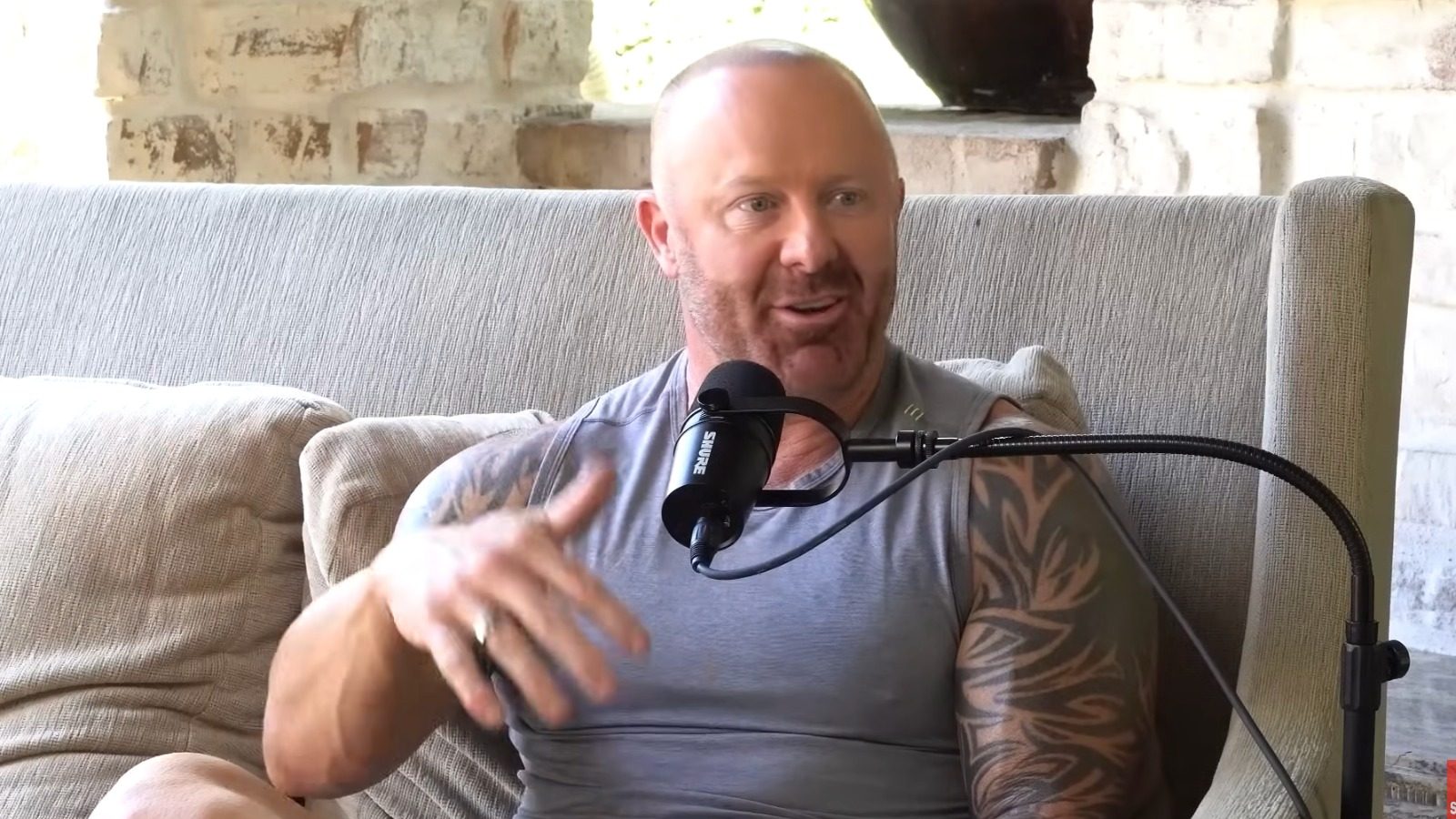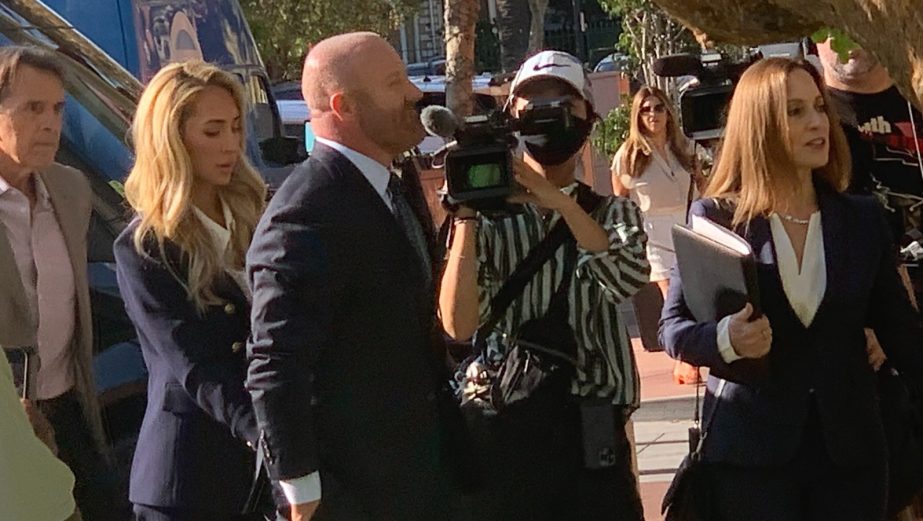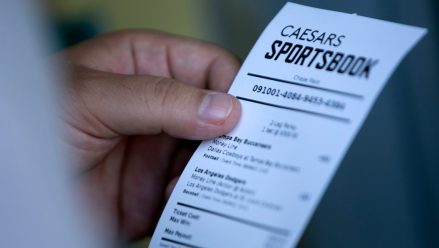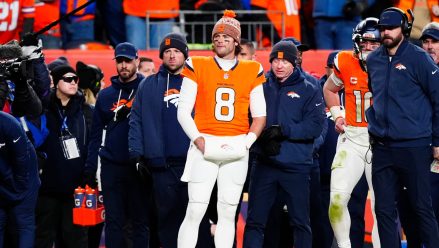Dear Matt,
I was in the courtroom Friday when you were sentenced to 12 months and one day in a federal prison for operating an illegal bookmaking business. I was overwhelmed at the outpouring of support — there must have been 50 people in the courtroom gallery, and that doesn’t count the people in the overflow room who met you in the foyer offering hugs and congratulations after Judge John W. Holcomb sentenced you to less time in prison than the federal government recommended.
But I was also conflicted. I’ve read the letters from your family to the judge. You are clearly an incredible dad, son, and partner. You’re tenacious, self-motivated, and committed. You’re also generous, loyal, and loving. You take pride in your work — whether that be throwing newspapers as a kid, starting a commodities trading business, or being the digital equivalent of a corner bookie.
Honestly, after reading your daughters’ letters about how present you are in their lives, how supportive you’ve been of their dreams and endeavors, and how you are, as Haley wrote, the “family’s glue,” I wonder where you found the time. And how you managed to live what appears to be a double life for so many years.
I’ve covered several court cases related to yours — Scott Sibella’s sentencing in a nearly empty courtroom in Los Angeles, and Ippei Mizuhara’s sentencing in a packed courtroom in the same Santa Ana courthouse where your penalty was handed down. All three of you pled guilty and owned your mistakes. But only Mizuhara seemed truly broken by the result.
Sibella seemed resigned to the idea that he’ll never work in the gambling industry again. He made a critical mistake — allowing illegal bookies, including you, to launder money at MGM Grand and Resorts World — but it appears that was nothing more than a business decision. You and Ippei? The gambling addictions clearly dominated your lives. His led to theft from the most famous baseball player on the planet, thrusting you both under an unexpected spotlight.
Mizuhara’s sentence is much steeper than yours. He’s serving nearly five years in prison. And that prison is 2,000 miles away from his California-based family, if they’re even still in California. In court, his body language said that he was defeated. When he gets out of prison, he’ll likely be deported back to Japan. And then probably shamed in his native country. It seems nearly impossible that he’ll ever be able to repay Shohei Ohtani the nearly $17 million he stole.
Gambling roots in childhood
As calculated as Mizuhara’s actions were — impersonating Ohtani, and making repeated transfers from his friend/boss’ bank account — yours were, as well. And for a significantly longer time period. Our legal system clearly penalizes bank fraud more heavily than running an illegal sportsbook or money laundering.
According to your letter to Judge Holcomb, you started taking illegal bets decades ago. And the October 2023 FBI raid on your home that kicked off the public part of this investigation was not the first.
I also heard on a podcast that you were running poker games out of your house as a teenager. That probably seemed pretty normal, given what you shared in court about the role gambling played in your childhood — regular visits to Los Alamitos Racetrack and family bets on Yahtzee!
But while Mizuhara seemed defeated, you’re almost triumphant.
You’ve made it clear that you own your mistakes, and seem to have embraced the entire experience. Four days before you went before Holcomb, during your appearance on YouTube’s WiseKracks, you were promoting your new book, Recalibrate, which is the top-seller in the Amazon Gambling Addiction & Recovery section four weeks after it became available.
Throughout the interview, you told stories of other not-so-moral acts, including getting your then-girlfriend to flee John Wayne Airport with a bag of undeclared gambling money, and saying it was OK because “we’re not doing anything wrong.” I suspect the woman who was detained because federal agents mistook her for Nicole would disagree. Or the story about how you were able to get Nicole, by then your wife, a spot as an independent casino rep at Resorts World because she would earn “$30,000-$40,000 when I was there” gambling. You called that “a great move, but a little too late.”
You also said that you’re not so sure that Ohtani wasn’t aware that Mizuhara was gambling — yet outside of the courthouse last Friday, you and your lawyer, Diane Bass, went out of your way to tell the media that you all stopped stories that Ohtani was betting, including calling Major League Baseball and presumably telling it you had no contact with Ohtani. You said that day you were sure Ohtani didn’t bet and that you’re sorry for the “slight tarnish to his name.” Yet four days earlier, you added to the tarnish.
“This is the part that’s still, in my opinion, in question,” you told host Bill Krackomberger. “Did Ohtani know that the interpreter was gambling and to the level he was? Did he steal his money or borrow it?
That part, to me, is still in question. Clearly, it’s not that he stole the money. He’s in prison, which I feel terrible for, to be honest, I’m a greedy guy.
“I love money. I love to act like I don’t, but I definitely don’t want to be part of a fraud scheme or I didn’t want to affect baseball or Shohei Ohtani’s tarnished name. I hate to say it, but I [had a role] in that.”
In general, you appear to have some amount of remorse in the telling of every story you’ve shared from your gambling days. But you appear to be repentant only because you were caught, not because you broke the law.
So many chances to change
There were signposts throughout your life that your gambling addiction was destructive — the shame, the divorces, the humiliation, the March 2014 FBI raid after which “nothing else happened.” You shared in your letter to the judge that your drinking and gambling were so out of control that “several times, I required intravenous re-hydration treatments in my casino hotel room after a night of heavy drinking.”
You named a host of U.S. casinos at which you had markers, and it seems, it would have been all but impossible for the executives at the Cosmopolitan, Foxwoods, or Palazzo — not to mention MGM Grand or Resorts World — to not know you were an illegal bookmaker. Yet you told Krackomberger that it seems unfair that the “casinos are still fighting with the government, and I’m the one who is going to prison.”
In the next breath, your loyalty showed through — you said you gave information about the casinos to federal prosecutors, but said you know 40 illegal bookies across the U.S. and did not turn on one of them. Information about Mizuhara and Damien LeForbes was found on your confiscated electronic devices, you said, but you did not reveal a single name.
You are a paradox. You showed up in court in a perfectly tailored suit, beautiful shoes, and a resolute expression. Four days earlier, during an interview, you wore a tank top that emphasized your sleeves and muscled arms, and a smile. The perfect, contrite businessman vs. the relaxed salesman.
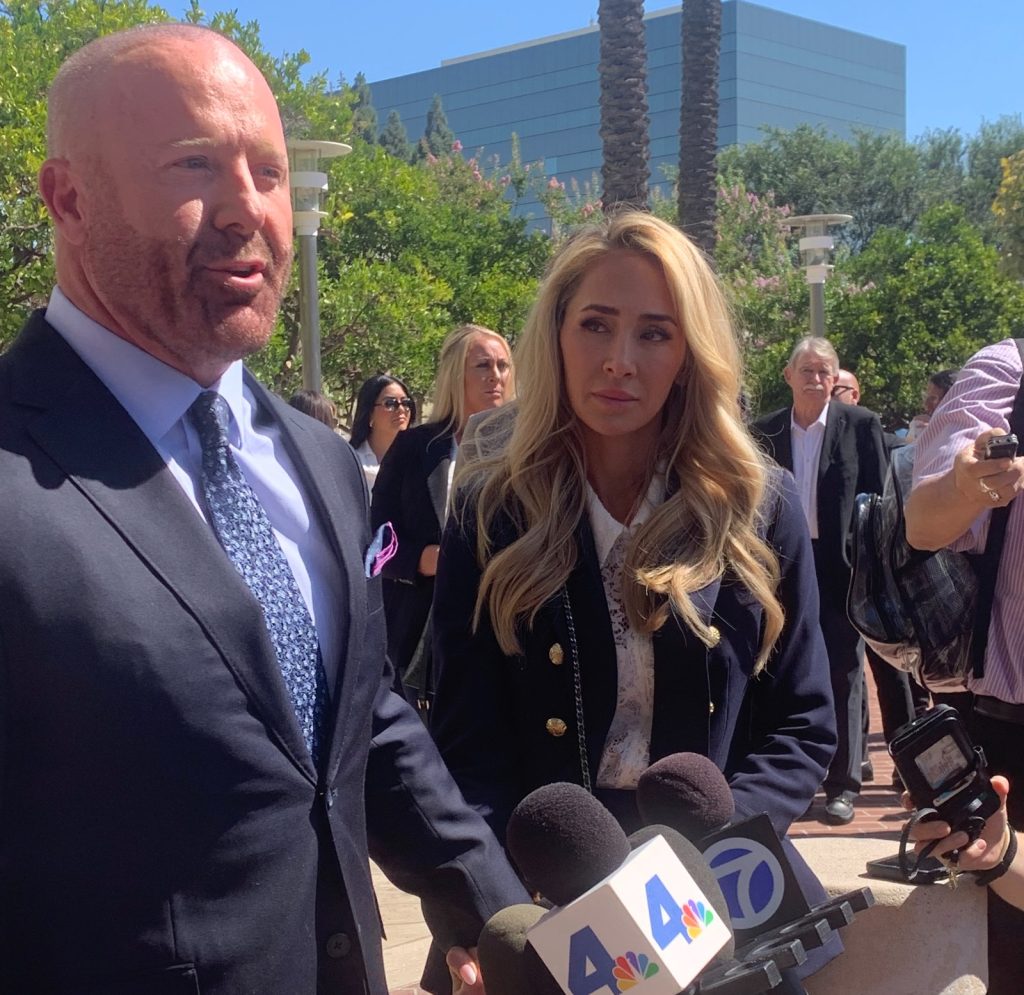
I understand that taking pride in your business, although it was an illegal one, is not a conflict. And that it is possible to love your family and friends and be incredibly generous while still being — your word — “greedy.” But it’s hard to take all of those things together and believe that you have changed and will continue to stay on the right side of the law. After all, as you told Krackomberger, about the 2014 raid, “So to be honest, my mistake at that point was being 39 years old, a father of four, greedy, loved gambling, loved sports. I’ll just build a bigger business. You don’t learn a lesson from that, I guess.”
So why should we believe you will learn a lesson this time? Is it because you were surrounded by armed FBI agents while holding your 2-year-old son? Or because you will be separated from your family? Or because you’ve finally seen the light?
It feels a lot like you maybe learned that it would be better to have a legal business than an illegal one, or as you said, to have a business where “everyone wins.” But the need for attention is still front and center. A common theme in your speech and letter to Holcomb and in your interview with Krackomberger isn’t that you had an epiphany. It’s that you got caught, so why not make the best of it? You seem unconcerned about going to prison — other than being away from your family.
Taken as a whole, you seem to view this whole experience as an opportunity, another chance to feed your addiction to attention.
The real addiction is attention
Before and through all of this, family members and friends shared stories of incredible generosity, loyalty, and commitment. There was the offer to fund an ex-wife’s in vitro efforts with her new husband. And the decision to work hard at a young age to help support your family after your father spiraled into alcoholism and left your mother to raise three boys on her own. And the drive to get a commodity trading license without the benefit of a college education, ultimately starting your own shop.
You’re clearly charismatic, and an incredible salesman — whether that was selling newspapers, commodities, sports betting, or in this case, yourself.
The world isn’t black and white, and you are the ultimate definition of gray. You are loyal, loving, and driven. You were also lawless, predatory, and ruthless. I can’t square it all in my head.
“I felt like a big shot talking to high-net worth, high rollers who talked to me like a trusted friend,” you wrote of running your illegal book. And “the casinos treated me like a star because I was their cash cow,” you wrote. That need for attention still exists — you’re writing a book about your life, and as you said in the post-sentencing press conference, you have a “sizzle” reel that you hope will become a documentary under review at Netflix.
At the same time, you’ve quit gambling, attend Gamblers Anonymous meetings, and have been working with Prison Professors Charitable Corporation, “creating education programming and training materials for justice-impacted individuals.”
To my eye, you knowingly and repeatedly broke the law, and happened to find some celebrity along the way due to Mizuhara’s connection to Ohtani. This is has created a new pathway for you — the chance to remain in the spotlight. It sounds like you’ll use that platform to help people, but I think you’re also an opportunist. Yes, you’ll help people by sharing your story, but it seems highly likely that you’ll earn a buck (or millions) along the way.
Some might call it making lemonade out of lemons — and Jon Orlando, Krackomberger’s co-host, used that very phrase. But your current situation isn’t something that “happened” to you like a recession that ruins a business, a car accident that is not your fault, or a life circumstance in which you were a victim.
You repeatedly made decisions to do wrong, to hurt yourself and your family, all in search of the high you get from gambling and attention. You don’t have to be a professional to understand from reading your letter or listening to you that you’re an addict. Now, you’re a recovering addict. But for how long? The love and support from your family and friends was not enough to break the cycle in the past. Neither was having the FBI paw through your home — twice. It took an arrest and a very public flogging these last two years to make you stop.
Not quite convinced
Don’t get me wrong, I want to believe that even though it took so long, this is the wake-up call that changes your life. Your daughters, wife, mother, and your lawyer (speaking of which, shout out to Diane Bass, she seems to be an incredible lawyer and friend) clearly believe this to be true.
I believe you believe this to be true. You wrote that you have “remorse for breaking the law and … determination to build a new life of hard work and service.” You also wrote that you “want a more peaceful life for my family and for me. Before I find that peace, I know I must answer for my years of inexcusable, criminal conduct.”
But there’s the book, the sizzle reel, the public appearances. I believe most celebrities would tell you that kind of attention is the opposite of peace.
You’re an enigma, Matt. And I want to understand. I want to believe that good can come from bad. That lessons learned in the world can be applied to help others. That we can’t change the past, but we can change. But it’s hard. It’s so, so hard.
And so far, I’m not convinced.

